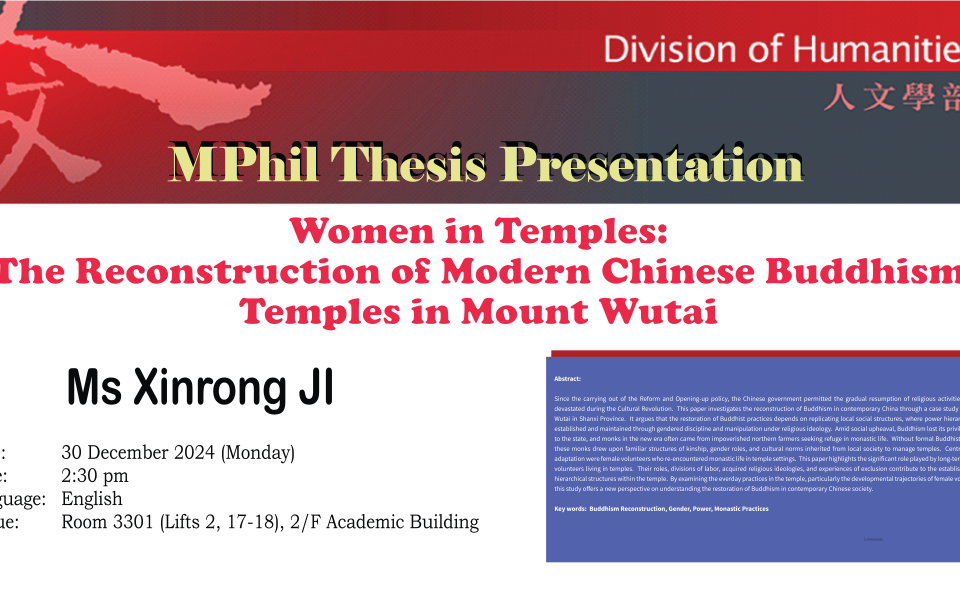Abstract:
Since the carrying out of the Reform and Opening-up policy, the Chinese government permitted the gradual resumption of religious activities in sites devastated during the Cultural Revolution. This paper investigates the reconstruction of Buddhism in contemporary China through a case study of Mount Wutai in Shanxi Province. It argues that the restoration of Buddhist practices depends on replicating local social structures, where power hierarchies are established and maintained through gendered discipline and manipulation under religious ideology. Amid social upheaval, Buddhism lost its privileged ties to the state, and monks in the new era often came from impoverished northern farmers seeking refuge in monastic life. Without formal Buddhist training, these monks drew upon familiar structures of kinship, gender roles, and cultural norms inherited from local society to manage temples. Central to this adaptation were female volunteers who re-encountered monastic life in temple settings. This paper highlights the significant role played by long-term female volunteers living in temples. Their roles, divisions of labor, acquired religious ideologies, and experiences of exclusion contribute to the establishment of hierarchical structures within the temple. By examining the everyday practices in the temple, particularly the developmental trajectories of female volunteers, this study offers a new perspective on understanding the restoration of Buddhism in contemporary Chinese society.
Key words: Buddhism Reconstruction, Gender, Power, Monastic Practices
